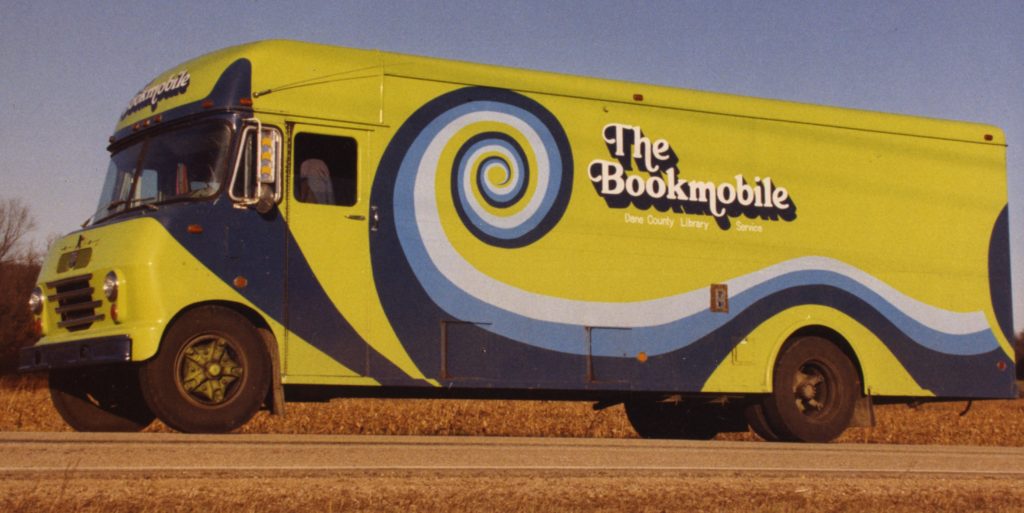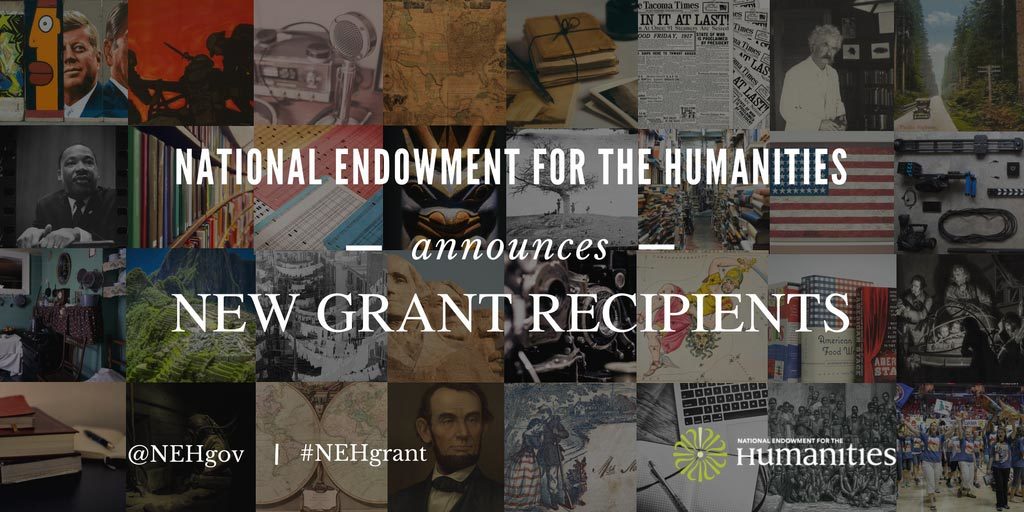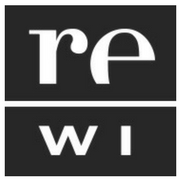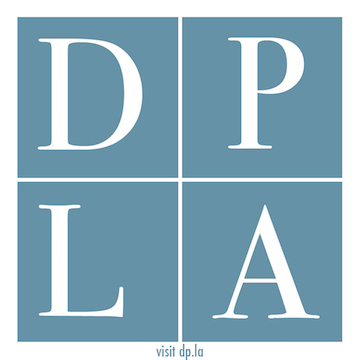We’re excited to work with Team Menomonee Falls Library as part of the Recollection Wisconsin Digitization Initiative! Founded in 1906, the Menomonee Falls Public Library encourages lifelong learning by providing materials, services, and programs to enrich our community’s educational, informational, and recreational needs. It also seeks to stimulate children’s appreciation for reading and interest in learning…. Read More…
Digitization
Meet Team Middleton Area Historical Society
We are thrilled to be working with the Middleton Area Historical Society (MAHS) as part of the Recollection Wisconsin Digitization Initiative! The Middleton Area Historical Society was established in 1972 with a mission to preserve and publicize the history of the Middleton, Wisconsin area. It is two museums – the Rowley House Museum and the… Read More…
Meet Team Washington Island Museums
We are thrilled to be working with the Washington Island museums this spring as part of the Recollection Wisconsin Digitization Initiative! Their project includes photographing and digitizing materials held by the Jacobsens Museum, part of the Town of Washington Museums group. This includes boat models (schooners) built by Jens Jacobsen (1867-1952) in the late 1800s,… Read More…
Meet Team Milwaukee Art Museum
We are thrilled to be working with the Milwaukee Art Museum this spring as part of the Recollection Wisconsin Digitization Initiative! Their project focuses on digitizing, creating descriptive information for and providing public access to materials from the Brooks Stevens Archive, one of several special Museum Collection archives acquired from the Stevens family in 1997…. Read More…
Spring Cohort Begins Digitization Work
Our Recollection Wisconsin Digitization Initiative spring cohort commenced last week with a 3-hour virtual training event. Participants learned more about Recollection Wisconsin, the Digital Public Library of America and WiLS. Recollection Wisconsin staff presented key digitization best practices and shared knowledge, tools and resources to support students’ scanning, metadata creation, folder- and file-naming and organization schemes, digital preservation, and creating project… Read More…
Four Historic Wisconsin Businesses
by Jacqueline Steel, UW-Madison iSchool In fall 2024, I worked collaboratively with the Eagle River Historical Society and the Nicolet Federated Library System staff to digitize and describe a collection of materials that document historical resorts and supper clubs primarily in northern Wisconsin. Working with ERHS director Vito Bortolotti and NFLS director Tracy Vreeke, I… Read More…
Digital Curation With the Hoocąk Waaziija Haci Language Division (Ho-Chunk Nation)
by Kierstin Wagner, UW-Milwaukee SOIS This semester, I have had the pleasure of working with the Hoocąk Waaziija Haci Language Division (Ho-Chunk Nation) to organize, preserve, and provide access to decades of invaluable language-learning materials. My work with the language collections spanned three phases. The first phase involved inventorying and organizing the materials. Since 2017,… Read More…
Digitizing a Community Newspaper: Tips, Tricks, and How to Make Meaning Out of Metadata
by Julia Lalor, UW-Madison iSchool (’24) When I first set out to digitize copies of the community newspaper the Wisconsin Tobacco Reporter, I was somewhat skeptical of the impact that this project would have. I took the Edgerton Public Library at its word that digital copies of this newspaper would benefit researchers, but from the… Read More…
Meet Our Spring 2025 Cohort!
We are excited to announce our next Recollection Wisconsin Digitization Initiative cohort starting in January 2025. This initiative brings together Wisconsin content partners and information school graduate students to create new digital collections. Content partners will choose collections to digitize, and student staff will handle the digitization and metadata work as part of a paid… Read More…
Recollection Wisconsin Digitization Initiative
We’re thrilled to announce a new initiative supporting Wisconsin local history organizations in their digitization work! The aptly-named Recollection Wisconsin Digitization Initiative is a collaborative endeavor which brings together Wisconsin organizations with local history collections (public libraries, museums, archives, and local history or community organizations) and Wisconsin information school graduate students to digitize and publicly… Read More…
Updates to the Digital Readiness Toolkit
Recollection Wisconsin has enhanced and expanded its Digital Readiness Toolkit to incorporate guidance and best practices on digitizing and sharing audiovisual content. These enhancements, a result of valuable contributions from the Community Archiving Workshop, include a comprehensive digital readiness self-assessment tool for your organization, a framework for prioritizing A/V materials for digitization, and in-depth guidance… Read More…
Film Inspection and Digitization Kits Available to Borrow
Recollection Wisconsin, in partnership with the Wisconsin Center for Film and Theater Research, can loan a Film Inspection Kit for examining 8mm or 16mm film and a Wolverine Film Scanner for reformatting 8mm and Super8 film. Funding for the kits was provided by a grant to the Association of Moving Image Archivists (AMIA) from the Institute… Read More…
Recollection Wisconsin Discourages the Use of Prison Labor for Digitization
The Recollection Wisconsin Steering Committee offers the following recommendation on the use of prison labor for digitization. Background Libraries and cultural organizations are sometimes contacted by state corrections departments such as Oklahoma Correctional Industries (OCI) offering digitization services, particularly for high school yearbooks. These services, typically free or nearly so, may appeal to organizations that… Read More…
Preserving At-Risk Audiocassettes: A Case Study of the History Museum at the Castle in Appleton, Wisconsin
This post was contributed by Bronwen Maseman, a Madison-based librarian, educator, consultant, and researcher. This case study is part of the Community Archiving Workshop Regional Training of Trainers program, funded by an Institute of Museum and Library Services (IMLS) Laura Bush 21st Century Librarian Program grant (RE-85-18-0039-18) in partnership with the Association of Moving Image… Read More…
Preserving At-Risk Acetate Reel to Reel Audio Recordings: A Case Study of the University of Wisconsin – Eau Claire Special Collections and Archives
This post was contributed by Bronwen Maseman, a Madison-based librarian, educator, consultant, and researcher. This case study is part of the Community Archiving Workshop Regional Training of Trainers program, funded by an Institute of Museum and Library Services (IMLS) Laura Bush 21st Century Librarian Program grant (RE-85-18-0039-18) in partnership with the Association of Moving Image… Read More…
Preserving At-Risk 16mm Acetate Films: A Case Study of the Milwaukee Public Museum
This post was contributed by Bronwen Maseman, a Madison-based librarian, educator, consultant, and researcher. This case study is part of the Community Archiving Workshop Regional Training of Trainers program, funded by an Institute of Museum and Library Services (IMLS) Laura Bush 21st Century Librarian Program grant (RE-85-18-0039-18) in partnership with the Association of Moving Image… Read More…
The Toolkit: File Formats
The Toolkit brings together resources for creating, managing, and sharing digital collections to address common concerns we often hear, like this one: JPEG, WAVE, MOV, PDF – what do they all mean? Which should we use for things we’re digitizing? Digital file formats quickly give way to alphabet soup: JPEG, WAVE, MOV, PDF…Here are several… Read More…
The Toolkit: Wrapping Up a Digitization Project
The Toolkit brings together resources for creating, managing, and sharing digital collections to address common concerns we often hear, like this one: My digitization project will end later this year. What do I need to do to wrap up this work? All good things must come to an end, right? Whether grant-funded or supported by… Read More…
The Toolkit: You asked, let’s chat!
The Toolkit brings together resources for creating, managing, and sharing digital collections to address common concerns we often hear. This month, we’re featuring a few frequently-asked questions posed by local history practitioners during our summer Digital Readiness Fairs. Any advice for getting started with a digitization project? How should we create metadata to allow a… Read More…
Missed the first three Digital Readiness Fairs?
It’s not too late to jump on the bandwagon! Join us for the last Digital Readiness Fair of the summer on August 18, 2021 from 1 – 4:30 pm (CST). Hosted by the Kenosha County Historical Society, this fair will include guest presenter sessions on the Jewish Museum of Milwaukee’s video oral history program and… Read More…
Sharing Local History Resources: A Digital Readiness Case Study
You digitized some of your favorite and most engaging materials from your local history collection – now what? Some local history organizations digitize collections to facilitate reference requests or reduce wear and tear on their oldest or most frequently handled materials. Others share images on their organization’s website or social media sites to generate community… Read More…
The Toolkit: Inheriting a Digital Project
The Toolkit brings together resources for creating, managing, and sharing digital collections to address common concerns we often hear, like this one: Help! I inherited my organization’s digitization project and I don’t know where to start! Some of us have the luxury of building a digitization project or program from scratch. Others, though, take on… Read More…
Digital Readiness Fairs: Registration Now Open!
Join Recollection Wisconsin and local history practitioners this summer at one of four virtual Digital Readiness Fairs! These free, half-day events offer a mix of activities and learning opportunities, and showcase digitization work from around the state. Hear from local history practitioners and how they have tackled digitization projects, including challenges, successes, and lessons learned… Read More…
Midwest Archives Conference: Building a Statewide Digital Readiness Community of Practice
Earlier this spring, WiLS staff Vicki Tobias and Kristen Whitson presented at the Midwest Archives Conference annual conference on the Digital Readiness Community of Practice. Joined by Launch Committee members Robin Untz (Lake Mills Aztalan Historical Society) and Janean Mollett Van Beckum (History Center of Washington County), the group shared the project origins and goals,… Read More…
The Toolkit: Content Statements
The Toolkit brings together resources for creating, managing, and sharing digital collections to address common concerns we often hear, like this one: Should my institution include a content warning or statement on our digital collection website? What is a content statement? A content statement is a message on your digital collection website or within your… Read More…
The Toolkit: Digitizing Yearbooks
The Toolkit brings together resources for creating, managing, and sharing digital collections to address common concerns we often hear, like this one: I’d like to digitize my community’s high school yearbooks, but I’m concerned about copyright, harmful content and privacy issues, especially if we add these to our online public collection. Who doesn’t love old… Read More…
The Toolkit: Rights Statements
The Toolkit brings together resources for creating, managing, and sharing digital collections to address common concerns we often hear, like this one: My digital collection is a mix of public domain and in-copyright materials. How will my users know what they can and can’t use? Generally speaking, until recently there haven’t been widely used standards… Read More…
The Toolkit: Buying a Scanner
The Toolkit brings together resources for creating, managing, and sharing digital collections to address common concerns we often hear, like this one: What scanner should I buy? Unfortunately, there is no quick or easy answer. It really depends on individual project goals (and budget constraints!). The options available can be overwhelming – flatbed scanners, overhead… Read More…
The Toolkit: Digitizing Indigenous Materials
The Toolkit brings together resources for creating, managing, and sharing digital collections to address common concerns we often hear, like this one: Our institution has a collection of materials that are related to Indigenous communities of Wisconsin. We are interested in digitizing these materials. How should we go about this? As mentioned in the February… Read More…
Content Partner Case Studies
Curious to know how Recollection Wisconsin content partners accomplish their digitization work? We asked a few of our content partners to reflect on and share their experiences creating digital collections from local history resources. These case studies include digitization best practices, lessons learned and impact stories from local history organizations in Wisconsin. Railroad and Logging… Read More…
The Toolkit: Can We Digitize and Put These Images Online? Should We?
The Toolkit brings together resources for creating, managing, and sharing digital collections to address common concerns we often hear, like this one: Our library has a collection of photographs that shows the people, places, and events of our town. The earliest photographs are probably from the early 1900s and the most recent date to the 1970s…. Read More…
Public library systems attend training workshops for digitization kits
In July, 22 staff from 12 regional public library systems around the state participated in training workshops presented by South Central Library System and Recollection Wisconsin. The workshops, held in Madison at SCLS headquarters and in Keshena at the College of Menominee Nation Library, introduced system staff to the mobile digitization kits that were distributed… Read More…
Digitization Kits for Public Libraries
We are excited to announce a new effort, in collaboration with South Central Library System, to increase the capacity of public libraries across the state to digitize their local history resources. SCLS will distribute digitization kits to Wisconsin’s public library systems, which can then loan out the kits to their member libraries starting this fall…. Read More…
Digitization and Public Libraries: SCLS Workshop
Workshop presented for South Central Library System directors meeting, Sun Prairie, November 15, 2018…. Read More…
Supporting Digital Projects in Southcentral Wisconsin

This post is contributed by Tamara Ramski, Digitization Specialist, South Central Library System (SCLS). The South Central Library System (SCLS) provides services to public libraries in seven counties in south-central Wisconsin. In 2017, SCLS began offering member libraries assistance with local history digitization projects through a Library Services and Technology Act (LSTA) grant funded by… Read More…
WiLSWorld 2018: Innovations in Digital Projects
This session for WiLSWorld 2018, July 24 in Madison, highlighted new tools and innovative approaches Wisconsin libraries are using to create, share and preserve digital collections. Presenters: Vicki Tobias, Program Coordinator, Curating Community Digital Collections, WiLS Ann Hanlon, Head, Digital Collections and Initiatives and DH Lab, UW-Milwaukee Randi Ramsden, Program Coordinator, National Digital Newspaper Program,… Read More…
NEH Grant Will Digitize, Share Wartime Oral Histories

The National Endowment for the Humanities (NEH) recently announced $18.6 million in grants for 199 humanities projects across the country. “These new NEH-supported projects deepen our understanding and appreciation of the traditions, values, and historical figures who have shaped our country,” said NEH Senior Deputy Chairman Jon Parrish Peede. We are thrilled to share the… Read More…
Digitizing at-risk media with RADD
Recovering Analog and Digital Data (RADD), in the Laboratory Library at the School of Library and Information Studies (SLIS) at UW-Madison, is a collection of equipment for digitizing audio cassettes, VHS tapes, floppy disks and other outmoded media formats. The oral histories, musical performances, and other unique information stored on these types of materials are… Read More…
Winding Rivers Library System digitization project
Slides and handout from the Winding Rivers Library System’s Exploring Cultural History Online kickoff event, La Crosse, Wisconsin, June 19, 2014. The WRLS ECHO project is an LSTA-funded initiative to digitize photographs and postcards held by member libraries and local historical societies in the region. Handout (pdf)… Read More…



You must be logged in to post a comment.